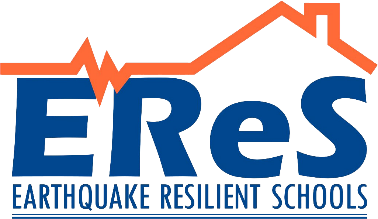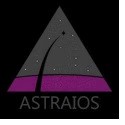Rapid Earthquake Damage Assessment ConsorTium (REDACt)
A project funded by the Black Sea basin Joint Operational Programme 2014-20 (07 / 2020 – 31.12.2022). Awarded as a “Flagship project”, featured in May 2023 TESIM Newsletter and in EURONEWS, Smart Regions.
REDACt led to the development of a comprehensive Rapid Earthquake Damage Assessment (REDA) System which includes:
• REDA Platform providing scenario-based and near real-time, harmonized damage assessments for buildings, gas pipelines, and geotechnical failures (e.g., landslides, liquefaction), thus supporting coordinated response in Cross-Border Areas.
• Smartphone App, designed for public use.It delivers real-time event information, enables users to send reassuring messages, submit felt reports, and view maps of refuge areas.
• Educational Hub to raise public awareness, promote neighborhood-level volunteering, and support situational awareness during emergencies.
The system underwent extensive validation. Continuous engagement with target groups ensured that project outputs were aligned with user needs and the goals of the funding program. By serving both disaster management authorities and the public, the REDA system enhances earthquake preparedness and community resilience, contributing to long-term sustainability across the region.
Earthquake Resilient Schools (EReS)
A Union Civil Protection Mechanism 2022 project. Τhe EReS project delivers critical advancements in seismic hazard and risk assessment for the Greece-Türkiye CBA, fostering collaboration and data sharing through platforms like the Rapid Earthquake Damage Assessment system. By harmonizing methodologies and focusing on vulnerable infrastructures such as schools, the project enhances the region’s resilience to seismic events. Continued efforts to refine risk models and expand real-time monitoring will further enhance support for National, Regional and Local authorities in their preparedness and mitigation planning
Rapid Earthquake Damage AssessmentΝΕΧΤ (REDA -NEXT)

A Black Sea Basin NEXT project. Further improves and extends REDACt outputs to cover additional geographical areas (Bulgaria) and continues efforts to refine risk models and enhance support for National and Regional Civil Protection authorities.
ASTRAIOS (Analysis of Skills, Training, Research and Innovation Opportunities in Space)
The advancement of the EU space sector is highly dependent on the availability of high educational standards, skilled professionals, and the ability for these professionals to upgrade and update their skills.
The ASTRAIOS project will foster innovation, increase EU competitiveness in the space sector and improve the dynamics of the space entrepreneurships ecosystems.
To achieve this, the ASTRAIOS team will provide an exhaustive view and understanding of the current and future Space curricula and courses offered in the EU-27. The project will also describe the need from the European Space industry in the next 10-15 years and identify actionable ways towards a better alignment between the offered educational programmes and the skills required by the future European space industry
Enhancing education programmes in Arts and Humanities via European STEM methods and tools
Project duration: 2020-2023
Project funding: 860.000 €
Funding reference number 618802-EPP-1-2020-1-DE-EPPKA2-CBHE-JP
EU-Programm, Erasmus+ Capacity Building in Higher Education Call EAC/A02/2019“
The project is funded by the EU and will enhance DH education in Russia and Mongolia with a focus on cultural heritage and 3D reconstructions. The partners of the Department for Digital Humanities are from Russia (4 universities), Mongolia (3 universities), two universities in Greece, and one each in Cyprus and Italy. More information will be available soon.
Project Partners
Lead: Department for Digital Humanities (IDH), University of Cologne
Project partners:
- CUT – Digital Heritage Research Lab/UNESCO Chair on Digital Cultural Heritage, Cyprus University of Technology (CUT), Limassol, Cyprus
- Department of Civil Engineering and Architecture (DICAR), Università degli Studi di Catania (UNICT), Catania, Italy
- Knowledge and Uncertainty Research Laboratory (ΓΑΒ LAB), University of Peloponnese (UOP), Greece
- Perm State University (PSU), Perm, Russia
- Russian State University for the Humanities (RSUH), Moskow, Russia
- Immanuel Kant Baltic Federal University (IKBFU), Kaliningrad, Russia
- Tuvan State University (TuvSU), Kysyl, Russia
- Mongolian University of Science & Technology (MUST), Ulaanbaatar, Mongolia
- National University of Mongolia (NUM), Ulaanbaatar, Mongolia
- University of the Humanities (UH), Ulaanbaatar, Mongolia
- International Hellenic University (IHU), Thessaloniki, Greece




